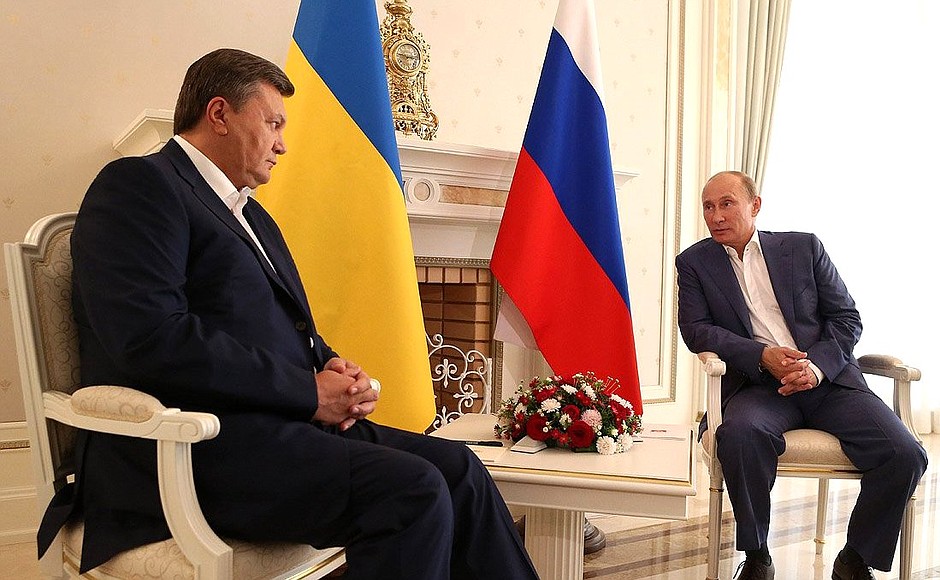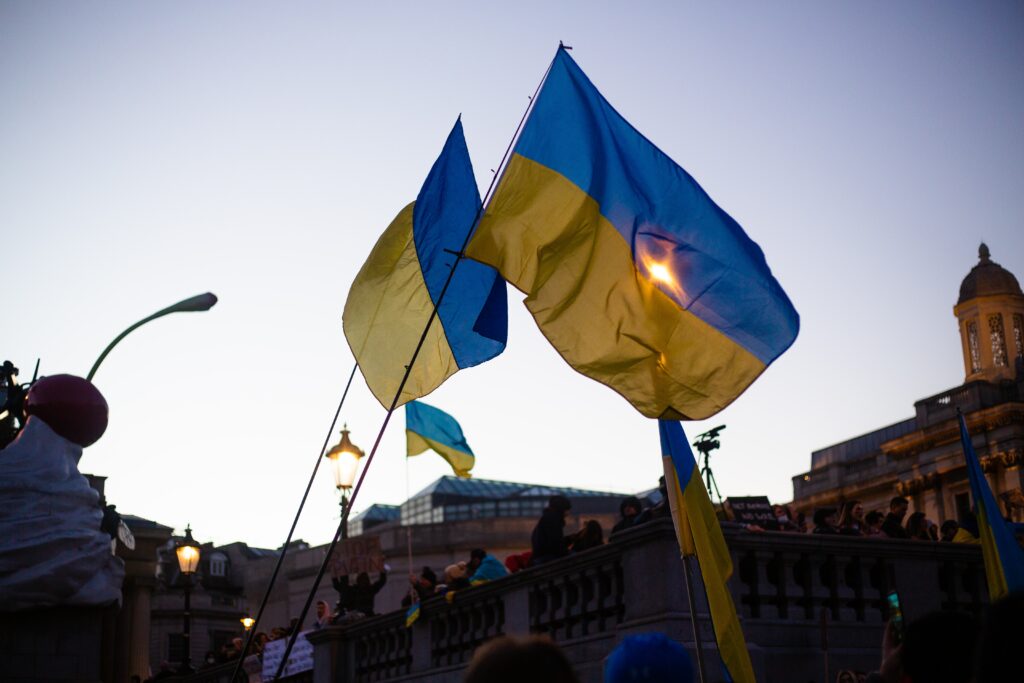Fr., Feb. 17th 2023

Former Ukrainian President Yanukovych meeting Russian President Vladmir Putin (Credit: President of Russia website).
Switzerland is pursuing returning 130 million Swiss francs in frozen assets from former Ukrainian president, Viktor Yanukovych, to the Ukrainian people as part of an international agreement, the Swiss government announced this week.
In May 2014, the Federal Prosecutor’s Office confiscated funds in Yanukovych’s and his two sons’ Swiss bank accounts.
In February that year, Yanukovych fled into exile in Russia following passing pro-Russia policy and plans for Ukraine to form closer ties with the EU. The backlash from the controversial policies ended in mass protests calling for his removal from office. Yanukovych and his family fled their massive estate, Mezhyhirya, that has been estimated to be worth $75 million. It is suspected that Yanukovych obtained the funds to buy the estate – complete with a private zoo and fleet of expensive cars – illegally through various business deals.
After his departure, a Ukrainian court accused the ex-president, his family and entourage of massive corruption, including money laundering. The court says loans worth CHF 32 billion disappeared under his presidency. Switzerland quickly after froze Yanukovych’s and his family members’ Swiss bank accounts. Ukraine has been lobbying to have access to the money in the years since – a pursuit that was recently sidelined when Russia invaded Ukraine.
In May 2022, the Swiss government re-opened the case, saying that there was more 100 million Swiss francs associated with the former president. Since then, the government has allocated another 30 million to the pot.
To return the funds, the finance ministry will first initiate “confiscation proceedings” with the Swiss Federal Administrative Court. After a decision is finalized, the funds will be returned; although, on what timeline remains to be seen. The move to return the funds to Ukraine is not related to Switzerland’s economic sanctions against Russia, the government said Wednesday.

The European Union has been looking for the legal basis to allow frozen Russian assets to be used to rebuild Ukraine.
Interestingly enough, the Swiss government announced this week that sending frozen Russian assets to Ukraine undermines the Swiss Constitution. Although some argue that the Russian funds may have been illegally obtained – much like Yanukovych’s – the Swiss government says using Russian funds break Swiss law.
Since Russia invaded Ukraine one year ago, the Swiss federal government has mirrored nearly all the EU-imposed sanctions on Russia – from freezing assets and bank accounts to cutting off Russian businesses and exports. So far, that amount is about 50 billion Swiss francs. Russians, especially wealthy oligarchs, have long taken advantage of Switzerland’s private banking laws, as well as purchasing ski chalets and lakeside villas in the country.
The State Secretariat for Economic Affairs reported late last year that the Swiss sanctions have affected about 7,500 business relationships and a total of 46.1 billion CHF with connections to Russia. Additionally, Switzerland has seized 15 properties. The expropriation of these assets without compensation is not permissible under Swiss law, a government report found Wednesday.
“The confiscation of frozen private assets is inconsistent with the Swiss constitution and the prevailing legal order and violates Switzerland’s international commitments,” the government said. “Other countries have similar constitutional rights and guarantees.”
Dieser Artikel darf frei weitergegeben und nachgedruckt werden, vorausgesetzt, es wird auf den Originalartikel verwiesen.
